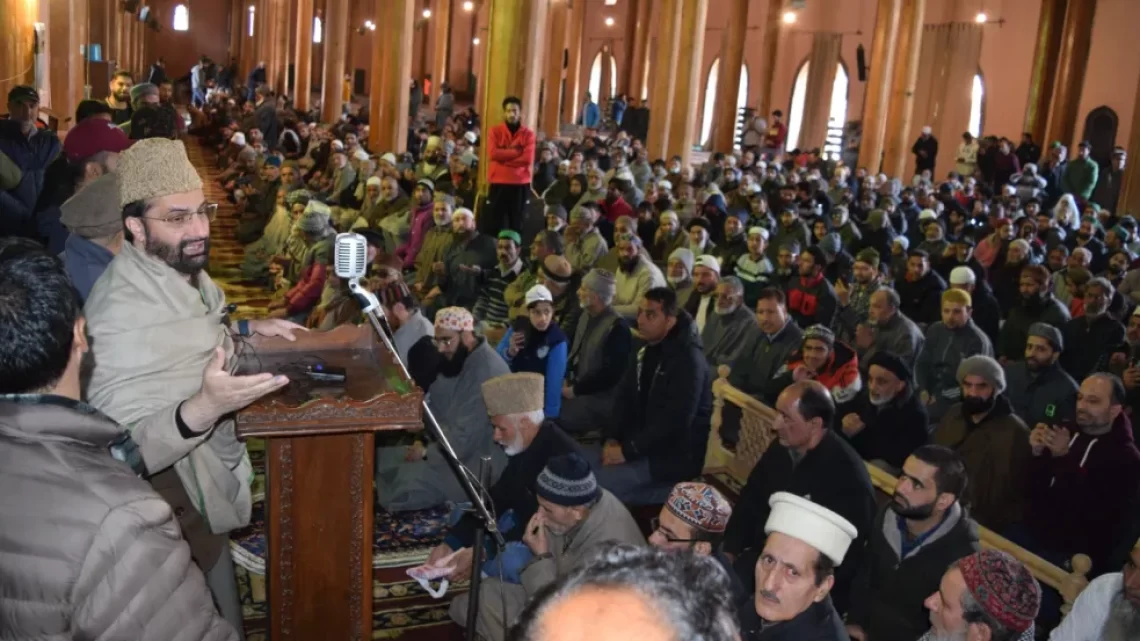
Mirwaiz Advocates for Resolving the Kashmir Issue through Dialogue and the Release of Prisoners
March 19, 2024Senior APHC leader Mirwaiz Umar Farooq has reaffirmed his stance on the longstanding Jammu and Kashmir conflict, stressing that meaningful resolution can only be achieved through dialogue.
In a statement released in Srinagar, Mirwaiz addressed not only the political deadlock but also the day-to-day struggles faced by Kashmiri civilians. He highlighted his recent release from house arrest and the reinstatement of Ramazan prayers on March 15 as demonstrations of his ongoing commitment to dialogue and the plight of human rights in the region.
Mirwaiz’s house arrest, initiated on August 4, 2019, a day prior to India’s abrogation of Article 370, lasted over four years until his release on September 22, 2023. However, sporadic periods of house detention persisted thereafter.
Furthermore, he urged for the immediate and unconditional release of numerous Kashmiri political detainees and youth held in prisons both within India and the occupied territory, extending this plea as a gesture of goodwill during the holy month of Ramazan. He emphasized the dire conditions faced by many detainees, which inflict significant distress upon their families.
Mirwaiz underscored the imperative for authorities to heed the collective conscience of the populace, urging them to prioritize addressing pressing issues such as the lack of electricity, exacerbating hardships, particularly during the sacred month, especially for impoverished individuals lacking alternative resources.
Moreover, he extended an invitation to Kashmiri Pandits, encouraging their return to the valley while denouncing the politicization of their displacement as a humanitarian concern rather than a political manoeuvre.
Mirwaiz’s statements encapsulate the multifaceted challenges confronting Kashmir, intertwining political aspirations with the daily struggles of its inhabitants. His insistence on dialogue echoes a longstanding plea for peaceful resolution amid a tumultuous landscape marred by intermittent unrest.
By emphasizing the dire conditions of detainees and the plight of ordinary citizens grappling with infrastructural deficiencies, Mirwaiz aims to draw attention to the human dimension of the conflict, transcending mere political rhetoric. His invocation of Ramazan as a backdrop for appeals for compassion and empathy underscores the moral imperative underpinning his advocacy.
Ultimately, Mirwaiz’s call for dialogue and concerted efforts towards addressing the grievances of Kashmiris reflects a nuanced approach that acknowledges the complexity of the situation while advocating for meaningful change. It underscores the necessity for stakeholders to engage in constructive dialogue and prioritize the well-being of the region’s inhabitants, laying a foundation for sustainable peace and reconciliation.

